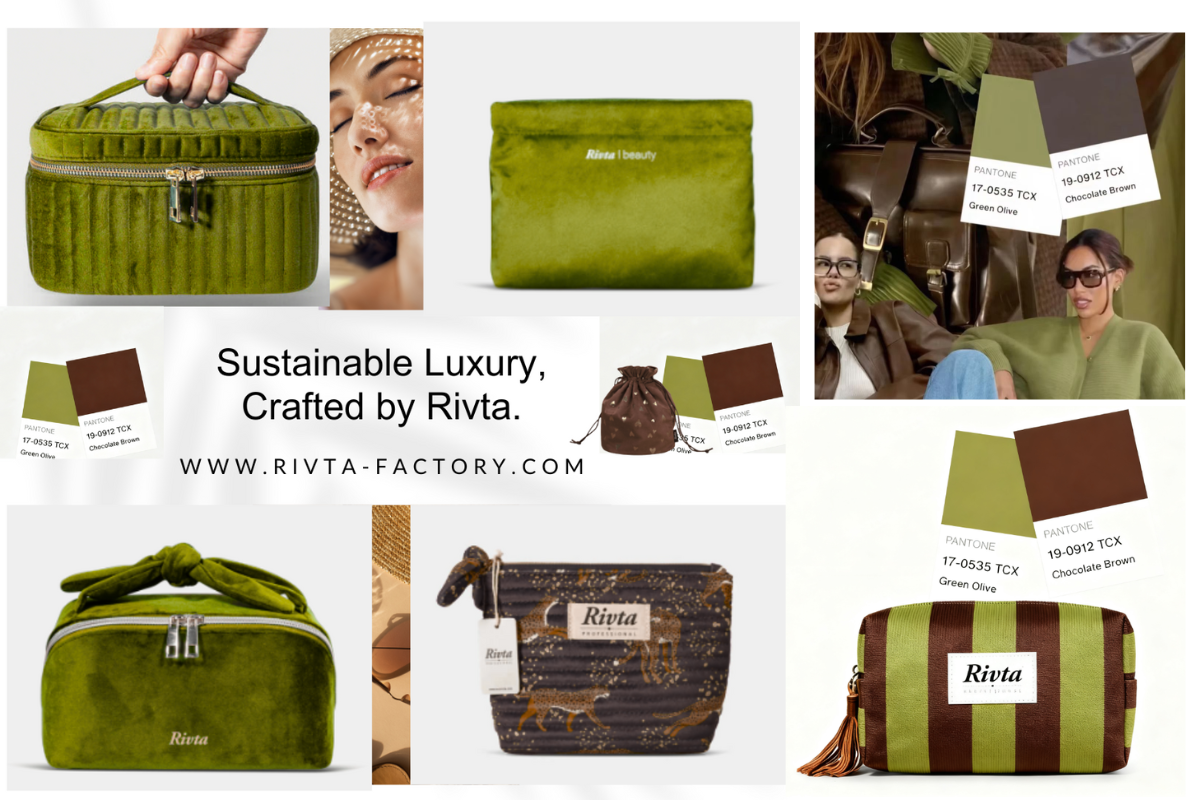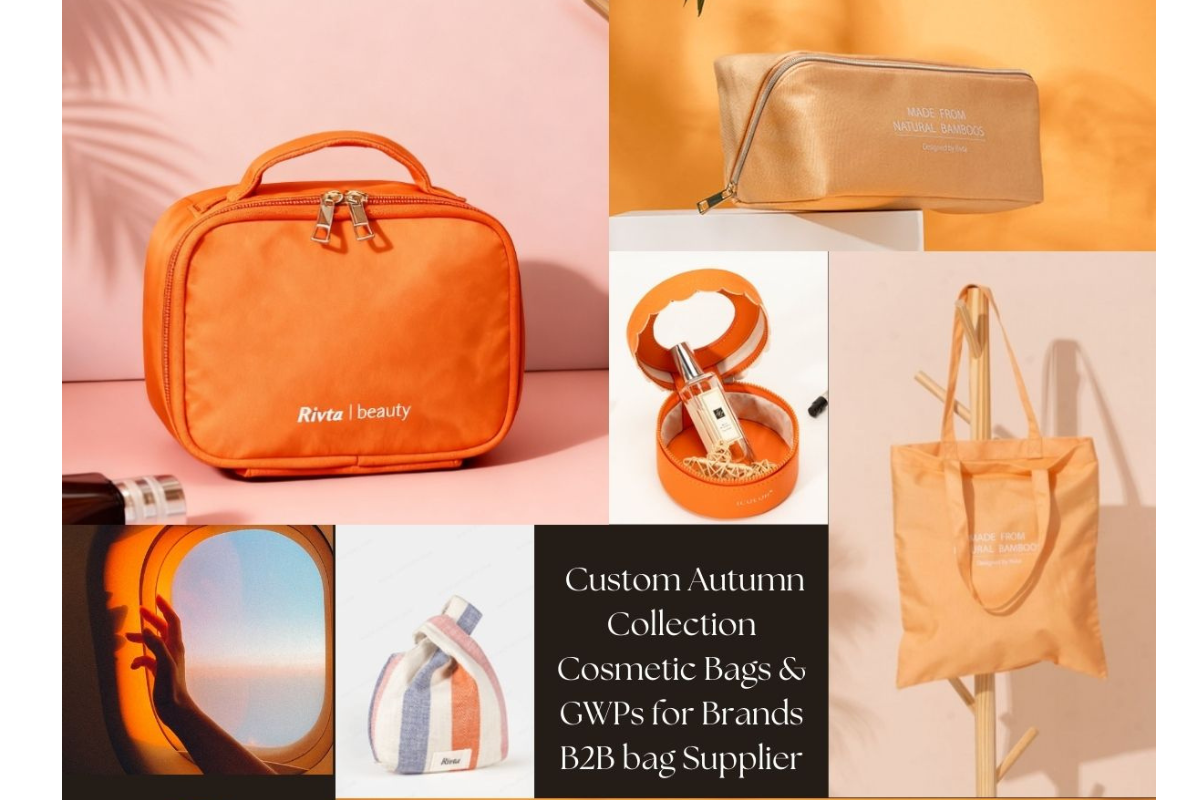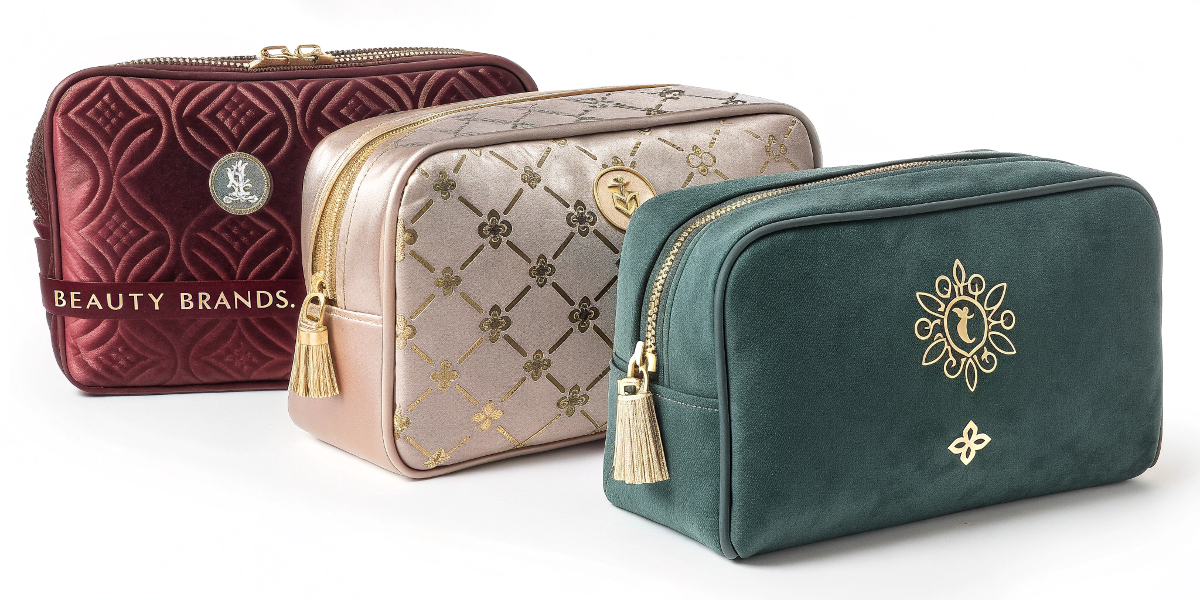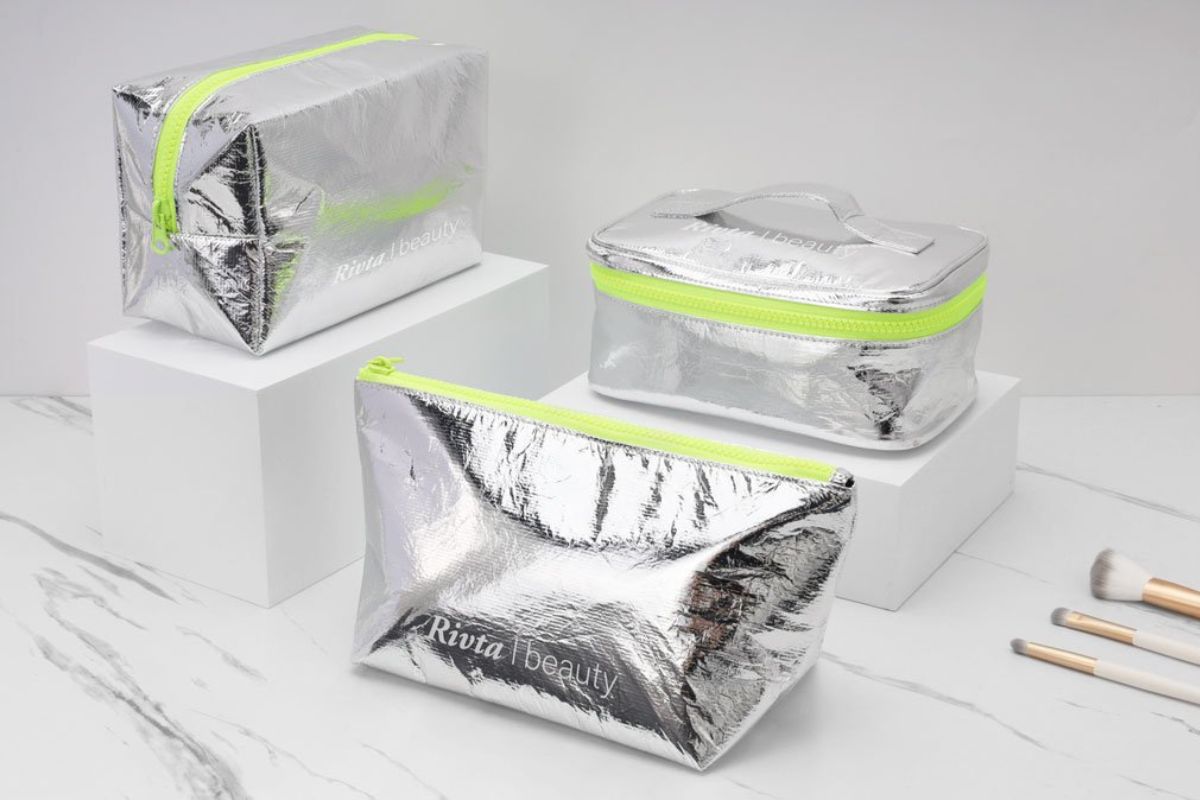Sustainable Cosmetic Bags: Why Your 2025 Beauty Brand Needs Eco-Friendly Packaging Partnerships
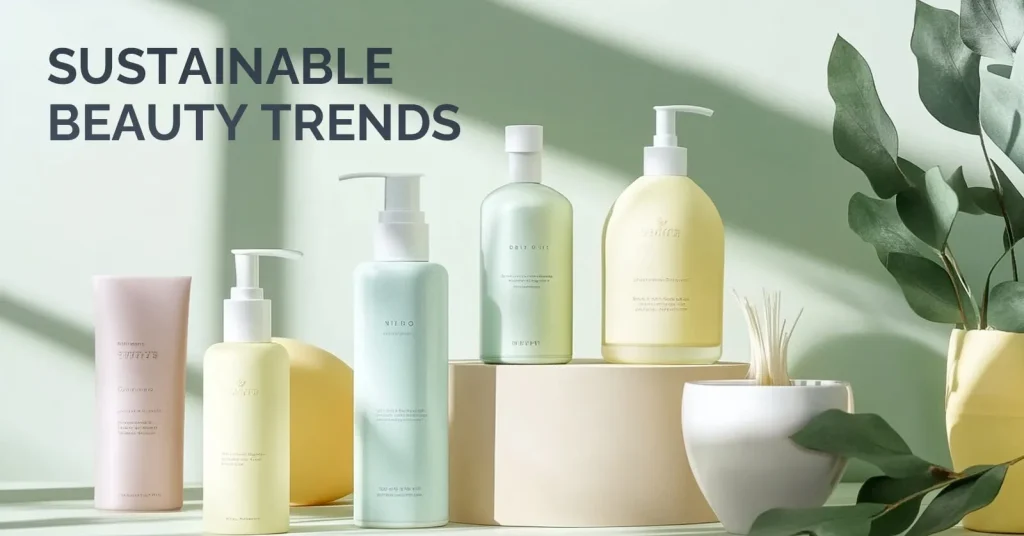
In the dynamic world of beauty, where trends evolve at lightning speed and consumer preferences shift with every season, one fundamental truth is becoming increasingly clear: sustainability is no longer a mere buzzword, but a core expectation. For beauty brands looking to thrive in 2025 and beyond, the conversation has moved beyond just sustainable ingredients in their formulations; it now extends to every facet of their product lifecycle, especially packaging. The demand for environmentally conscious choices, driven by a more informed and ethically minded consumer base, coupled with an ever-tightening regulatory framework, means that eco-friendly cosmetic bags are not just a thoughtful addition—they are an absolute necessity.
This isn't about making a small adjustment; it's about embracing a fundamental transformation in how beauty products are presented and perceived. As a beauty brand, your commitment to the planet is now as vital as the quality of your products. This is where strategic partnerships become invaluable. We believe that a collaboration with a manufacturer deeply rooted in sustainable practices, like Rivta, can be the cornerstone of your brand's future success. Rivta, with its decades of experience and dedication to eco-conscious solutions, stands ready to help you navigate this evolving landscape, ensuring your brand not only meets but exceeds the growing demand for environmental responsibility.
The Regulatory Landscape: Navigating a Greener Future

The global push towards environmental accountability has translated into a complex, yet crucial, web of regulations impacting the cosmetic packaging industry. For beauty brands, understanding and adapting to these evolving mandates is not just about compliance; it’s about safeguarding your brand’s reputation and ensuring market access. Governments worldwide are increasingly legislating against single-use plastics and promoting circular economy principles, making sustainable packaging a non-negotiable aspect of doing business.
In Europe, the Packaging and Packaging Waste Regulation (PPWR) is setting ambitious targets. By 2030, the vast majority of packaging materials in the EU must be recyclable, and certain single-use plastic packaging will face outright bans. This regulation also introduces a tiered system for Extended Producer Responsibility (EPR) fees, meaning brands will pay higher fees for using less sustainable materials. This directly incentivizes the adoption of eco-friendly alternatives, making sustainability a financial imperative, not just an ethical one. Furthermore, the PPWR restricts the use of harmful chemicals like PFAS and promotes refill and reuse systems, aiming for high return rates for containers.
The United States, while lacking a single federal mandate, is seeing a powerful surge in state-level regulations. California, a bellwether for environmental policy, has mandated a 25% reduction in single-use plastics and requires 65% of all packaging to be recyclable or compostable by 2032. Maine has set a long-term goal to increase recyclable packaging to 50% and reduce total packaging weight by 40% by 2040. Other states are following suit with various initiatives, from banning small plastic bottles in hotels to implementing registration systems for packaging manufacturers. Failing to meet these diverse state-specific standards can lead to increased costs, distribution restrictions, and a significant blow to brand credibility.
These regulations underscore a clear message: sustainable packaging is no longer a choice; it’s a necessity. Brands that proactively embrace these changes will not only avoid penalties but also build stronger consumer trust and secure their position in a rapidly greening market. The shift is profound, requiring a deep understanding of material science, supply chain ethics, and consumer communication. Partnering with a manufacturer that stays abreast of these global regulatory shifts is paramount for long-term success.
Table 1: Key Global Regulatory Trends in Cosmetic Packaging
| Region/Country | Key Regulations/Initiatives | Impact on Cosmetic Packaging | Target Dates/Goals |
|---|---|---|---|
| European Union | Packaging and Packaging Waste Regulation (PPWR) | Mandates recyclability, bans certain single-use plastics, introduces tiered EPR fees, promotes refill/reuse systems. | By 2030: Most packaging recyclable; 90% return rate for beverage containers. |
| United Kingdom | Plastic Packaging Tax (introduced April 2022) | Incentivizes use of recycled materials in packaging. | Ongoing |
| United States (California) | Plastic Pollution Prevention and Packaging Producer Responsibility Act | 25% reduction in single-use plastics; 65% of all packaging recyclable/compostable. | By 2032 |
| United States (Maine) | Extended Producer Responsibility for Packaging Law | Increase recyclable packaging to 50%; 40% reduction in total packaging weight. | By 2040 |
| Global Trend | Increased focus on Extended Producer Responsibility (EPR) schemes | Shifts responsibility for packaging waste management to producers, encouraging sustainable design. | Ongoing, with increasing stringency |
| Global Trend | Restrictions on harmful chemicals (e.g., PFAS) | Requires careful material selection to avoid prohibited substances. | Ongoing |
| Global Trend | Promotion of refill and reuse models | Encourages closed-loop systems to reduce virgin material consumption. | Ongoing |
Material Innovation: Beyond Traditional Boundaries
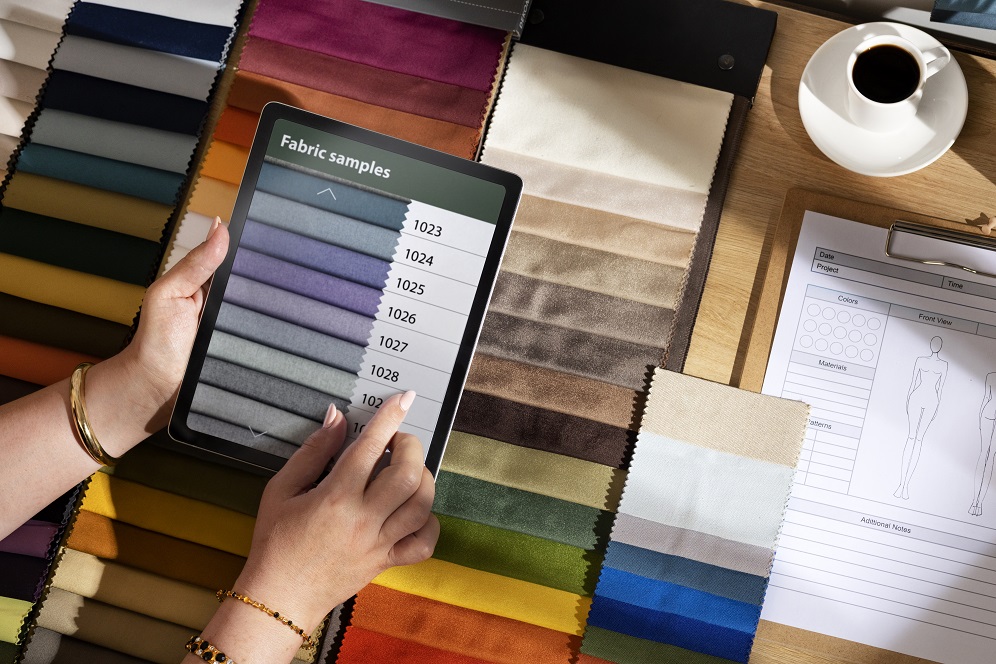
The quest for sustainability in cosmetic packaging has spurred an exciting wave of material innovation. Gone are the days when eco-friendly options meant compromising on aesthetics or durability. Today, a diverse array of materials offers beauty brands the opportunity to create packaging that is not only kind to the planet but also visually appealing and highly functional. These materials are transforming the industry, allowing for designs that resonate with environmentally conscious consumers and meet stringent performance requirements.
At the forefront of this revolution are recycled materials. Recycled PET (rPET), derived from post-consumer plastic bottles, offers a robust and versatile solution, reducing reliance on virgin plastics and diverting waste from landfills. Similarly, recycled PU leather provides a cruelty-free and environmentally responsible alternative to traditional leather, maintaining a luxurious feel without the ecological burden. Recycled cotton is another excellent option, giving new life to textile waste and reducing the demand for new cotton cultivation, which can be resource-intensive.
Beyond recycling, natural materials are gaining significant traction. Organic cotton, grown without harmful pesticides or synthetic fertilizers, offers a soft yet durable fabric, ideal for cosmetic bags. Bamboo fiber, known for its rapid growth and biodegradability, presents a renewable resource with a naturally elegant appearance. Even agricultural by-products are finding new purpose: pineapple fiber and banana fiber, extracted from the waste of fruit harvesting, are being transformed into surprisingly strong and flexible materials. Other natural contenders include jute, a coarse yet durable vegetable fiber, and Tencel, a cellulosic fiber derived from wood pulp through an environmentally responsible process. Linen, made from the flax plant, is celebrated for its strength and breathability, while recycled nylon offers a durable and water-resistant option from reclaimed fishing nets and other nylon waste. Finally, cork, harvested from the bark of cork oak trees without harming the tree, provides a lightweight, water-resistant, and naturally renewable material.
The benefits of embracing these innovative materials extend far beyond environmental impact. They offer unique textures, visual appeal, and a compelling story that can enhance your brand narrative. By choosing these materials, beauty brands can demonstrate a tangible commitment to reducing their carbon footprint, conserving resources, and supporting a circular economy. This commitment resonates deeply with modern consumers, who are increasingly seeking products that align with their values. Rivta has been at the forefront of exploring and utilizing these cutting-edge materials, ensuring that our partners have access to the best and most sustainable options available.
Table 2: Innovative Eco-Friendly Materials for Cosmetic Bags and Their Benefits
Eco-Friendly Materials for Cosmetic Bags
| Material Type | Specific Material | Key Benefits | Applications in Cosmetic Bags |
|---|---|---|---|
| Recycled Materials | Recycled PET (rPET) | Reduces plastic waste, durable, versatile. | Outer shell, lining, structural components. |
| Natural Materials | Recycled PU Leather | Cruelty-free, luxurious feel, reduces new material production. | Outer shell, accents, handles. |
| Recycled Cotton | Reduces textile waste, soft, breathable. | Outer shell, lining. | |
| Recycled Nylon | Durable, water-resistant, made from reclaimed waste. | Outer shell, lining, zippers. | |
| Organic Cotton | Grown without harmful chemicals, soft, breathable, biodegradable. | Outer shell, lining. | |
| Bamboo Fiber | Rapidly renewable, biodegradable, naturally antibacterial. | Outer shell, lining, accents. | |
| Pineapple Fiber | Strong, flexible, utilizes agricultural waste. | Outer shell, decorative elements. | |
| Banana Fiber | Durable, sustainable, utilizes agricultural waste. | Outer shell, structural elements. | |
| Jute | Durable, biodegradable, natural aesthetic. | Outer shell, accents. | |
| Tencel | Sustainable production, soft, strong, breathable. | Lining, outer shell. | |
| Linen | Strong, breathable, natural, biodegradable. | Outer shell, lining. | |
| Cork | Renewable, lightweight, water-resistant, unique texture. | Outer shell, accents, closures. |
The Power of Customization: Crafting Your Brand's Sustainable Identity
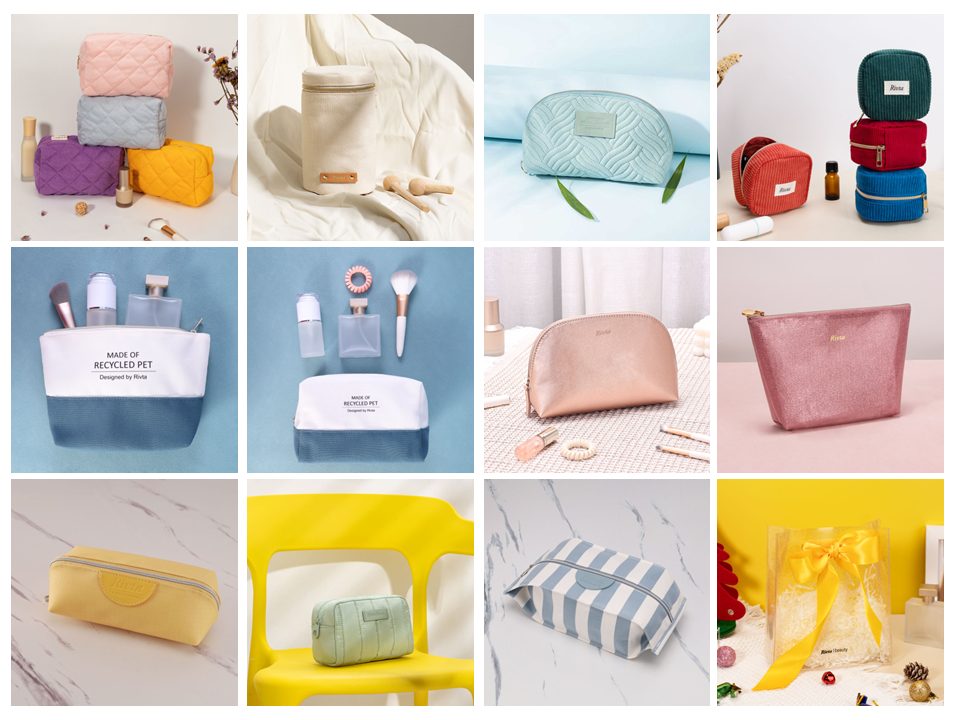
In a crowded marketplace, standing out is paramount. For beauty brands, this means more than just a compelling product; it requires a distinctive brand identity that resonates with your target audience. Sustainable cosmetic bags offer a unique opportunity to reinforce this identity, and the ability to customize these bags is where true differentiation begins. It’s about translating your brand’s values, aesthetic, and narrative into a tangible, eco-conscious accessory that your customers will cherish.
Customization goes far beyond simply slapping a logo onto a generic bag. It encompasses every detail, allowing you to create a cosmetic bag that is truly an extension of your brand. Imagine a bag that perfectly matches your brand’s color palette, features a unique print that tells your story, or incorporates innovative design elements that enhance user experience. This level of personalization ensures that your packaging is not just a container, but a powerful marketing tool and a memorable touchpoint for your customers.
For a brand like The White Company, known for its refined aesthetic and commitment to quality home accessories and gifting, the ability to customize eco-friendly cosmetic bags is particularly compelling. A senior buyer, like Lucy, with her extensive experience in product selection and trend analysis, understands that every item, down to the smallest accessory, must align with the brand’s overarching values. Customization allows for the creation of cosmetic bags that are not only practical and sustainable but also embody the understated sophistication and environmental responsibility that The White Company’s customers expect.
Rivta excels in this domain. Our capabilities extend to comprehensive customization in every aspect: from the fundamental size and shape to the intricate details of color, print, and embroidery. Whether you envision a compact pouch for travel essentials or a larger, multi-compartment bag for home organization, we can bring your vision to life. Furthermore, we offer extensive options for accessories, including various types of zippers, buttons, pockets, and trims, allowing for a truly bespoke product. This meticulous attention to detail ensures that the final product is not just a bag, but a carefully crafted piece that enhances your brand’s appeal and strengthens its connection with consumers. It’s about creating a product that feels personal, thoughtful, and deeply aligned with your brand’s ethos, fostering loyalty and reinforcing your commitment to a sustainable future.
Industry Adaptability and Rivta’s Support: Your Partner in Sustainable Growth
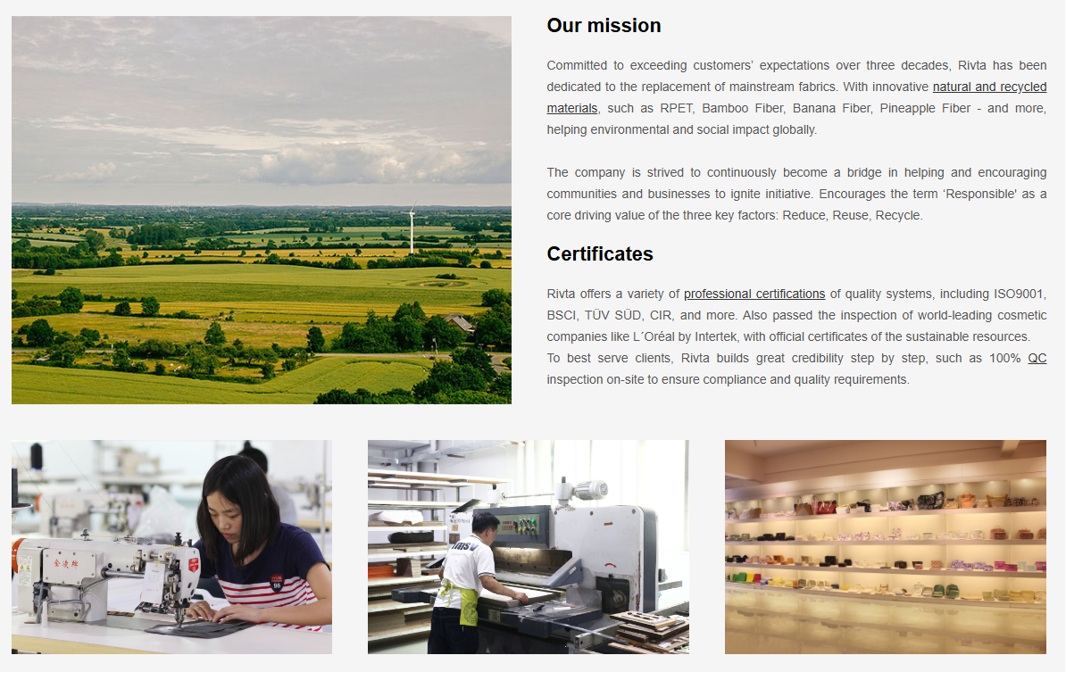
In the journey towards a more sustainable beauty industry, having a reliable and experienced manufacturing partner is crucial. This is where Rivta steps in, offering not just production capabilities but a deep understanding of the market’s evolving needs and a steadfast commitment to eco-friendly practices. Our long-standing presence in the industry, coupled with our focused focus, positions us as an ideal collaborator for beauty brands aiming for sustainable growth.
Rivta, established in the 1990s, has grown into a medium-scale manufacturer based in Dongguan, a hub of manufacturing excellence. Our decades of experience have allowed us to refine our processes and build a robust infrastructure capable of meeting the demands of global brands. Our product positioning is clear: we specialize in custom-made, mid-to-high end eco-friendly cosmetic bags for worldwide brands. This focus ensures that we are not just producing bags, but crafting premium, sustainable solutions tailored to the unique requirements of each client.
Our comprehensive services are designed to support your brand at every stage of the product development cycle. We offer original designs, leveraging our creative team’s expertise to develop innovative and aesthetically pleasing cosmetic bag concepts that align with current trends and your brand’s vision. Beyond design, our strength lies in providing innovative eco-friendly material solutions, actively researching and sourcing the latest sustainable fabrics and components to ensure your products are both environmentally responsible and of the highest quality. Of course, customization is at the heart of what we do, allowing for unparalleled flexibility in bringing your specific ideas to life. Finally, our robust manufacturing capabilities ensure efficient and high-quality production, from prototyping to large-scale orders.
Furthermore, Rivta’s commitment to ethical and quality production is underscored by our certifications. We are proud to hold BSCI, SEDEX, and ISO9001 certifications. These accreditations are not just badges; they represent our dedication to responsible business practices, fair labor conditions, and consistent quality management. For a buyer like Lucy, who values ethical sourcing and high standards, these certifications provide assurance that Rivta operates with integrity and adheres to globally recognized benchmarks. This commitment to transparency and accountability ensures that your partnership with Rivta not only yields exceptional products but also aligns with your brand’s broader corporate social responsibility goals.
By partnering with Rivta, beauty brands gain access to a wealth of experience, a commitment to innovation, and a proven track record of delivering high-quality, custom eco-friendly cosmetic bags. We help brands not only meet the increasing regulatory demands but also exceed consumer expectations for sustainable and ethically produced products. In a world where every business decision carries environmental weight, choosing the right manufacturing partner is a strategic move towards a more responsible and prosperous future.
Conclusion: Partnering for a Sustainable Tomorrow
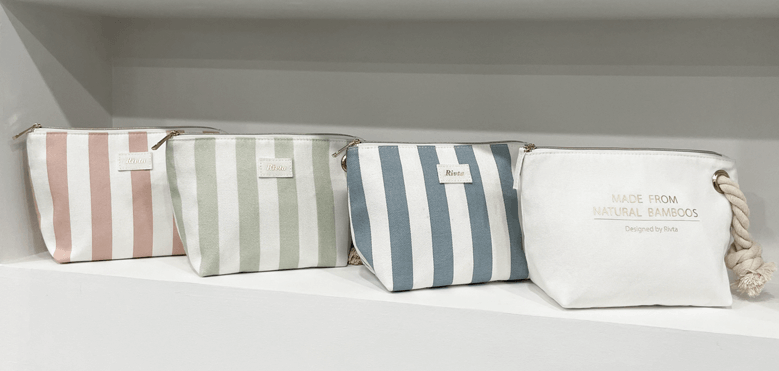
The beauty industry stands at a pivotal moment. The convergence of heightened consumer awareness, stringent regulatory pressures, and groundbreaking material innovations has made sustainability not just a desirable trait, but a fundamental requirement for success. For beauty brands navigating this evolving landscape, the choice of packaging—especially for something as personal and frequently used as a cosmetic bag—is a powerful statement of their values and commitment.
Eco-friendly cosmetic bags are no longer an optional extra; they are an essential component of a forward-thinking brand’s strategy. They represent an opportunity to align with global environmental goals, meet the demands of a conscious consumer base, and differentiate your brand in a meaningful way. This shift requires more than just good intentions; it demands practical solutions, innovative materials, and a manufacturing partner who understands the intricacies of sustainable production.
Rivta is that partner. With our deep roots in the industry since the 1990s, our unwavering focus on custom-made, mid-to-high end eco-friendly cosmetic bags, and our comprehensive services encompassing original designs, material innovation, and meticulous manufacturing, we are uniquely positioned to support your brand’s sustainable journey. Our BSCI, SEDEX, and ISO9001 certifications further underscore our commitment to ethical and quality production, providing you with the assurance that your products are crafted responsibly.
As you plan for 2025 and beyond, consider the profound impact that truly sustainable packaging can have on your brand’s inheritance. It’s about more than just a product; it’s about a promise—a promise to your customers, to the planet, and to a future where beauty and responsibility go hand in hand. Let’s build that sustainable tomorrow, together.
Ready to transform your beauty brand with eco-friendly cosmetic bags that speak volumes about your commitment to sustainability? Contact Rivta today to explore how our expertise in original designs, innovative material solutions, and bespoke manufacturing can bring your vision to life.
